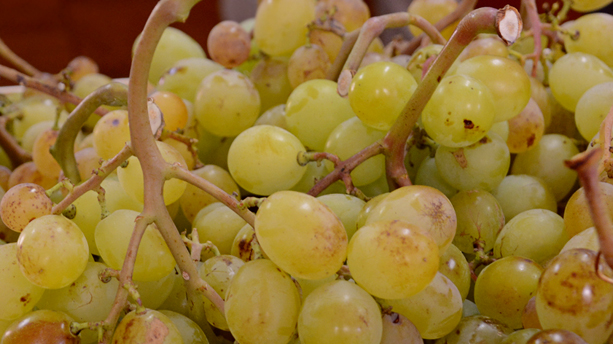The evolution of the agricultural wisdom has configured the landscape, culture and local cultivation that describes and identifies the municipality: Muscat. The Muscat grape is the main socio-agricultural and cultural heritage. Today 79.8% of the cultivated land (368 hectares) make up a landscape of dry-farmed vines.
The generosity and the quality of natural factors such as the Mediterranean climate, the prevailing wind of "de Llebeig" and the rains of autumn are keys to grateful and fertile lands under condition of natural rainfall -clay and limestone - continue to nourish the vines planted of ancestors. Climatological factors that each year achieve a delicious Muscat grape, of exquisite taste.
Moscatel, delicate manually treatment
The roman variety of Moscatel in El Poble Nou de Benitatxell, is a grape that requires a delicate and affectionate handling. For this reason, the farmers are aware that they apply their knowledge and traditional techniques to the vines under condition of natural rainfall. The Muscat is caressed by the humid winds of Llebeig to get its own identity and difference to the rest of cultivation sites. This grape gets its optimum of ripeness and harvest between middle of August and end of September.
The result is a natural and fresh fruit, characterized by a crunchy grain, fleshy, golden, sweet flavour and intense aroma. The excellent quality of this fruit gives benefits as antioxidants and vitamin B. Its rich natural sugars and carbohydrates, turn it into a source of daily natural energy.
Muscat is a delicious product of consumption as table grapes, but also serves as raw material for the preparation of raisins, jam, wines and sweet liquors.
